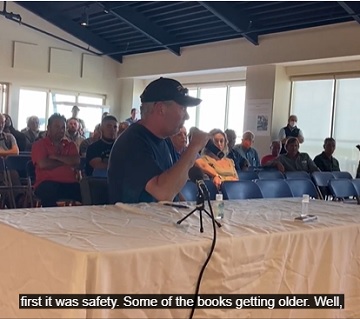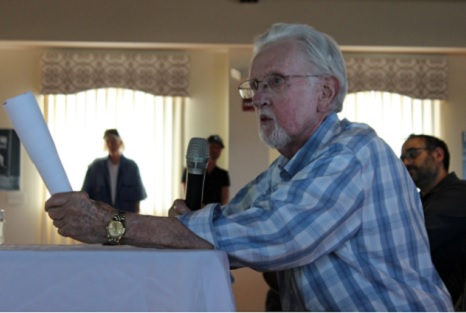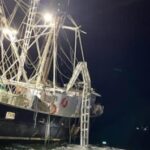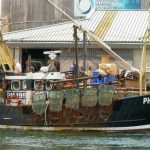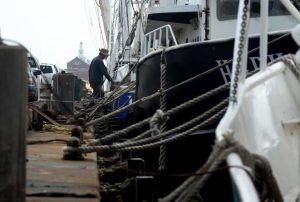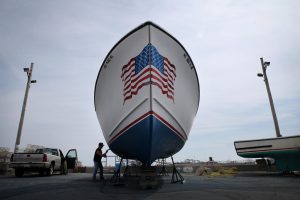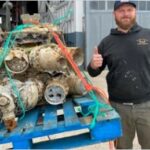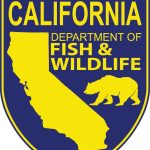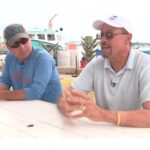Tag Archives: new-england-fishery-management-council
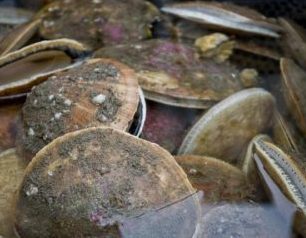
NEFMC to decide next moves on scallop license allocation leasing in Gloucester Tuesday
Scallop allocation leasing, the practice of boat owners selling days and tonnage from a fishing license to other vessel owners to harvest in restricted zones, has been at the center of debate in the Port of New Bedford since the NEFMC held two scoping meetings at the New Bedford Whaling Museum on May 11 and May 25 respectively. NEFMC invited stakeholders to attend nine meetings in Massachusetts, Rhode Island, New Jersey, North Carolina, Virginia, and two webinars. According to the Council, the vast majority, 78%, of the 286 commenters (several repeated, inflating the total number to 305) spoke against the proposed allocation leasing project during the scoping process. >click to read< 14:45
Regulators to vote on controversial scallop leasing plan Tuesday – After months of heated debate between scallop fleet owners, captains and crew, fisheries regulators are set to decide on a proposal to allow leasing in New England’s lucrative scallop fishery. More than 75% of the nearly 300 people who commented during the public process said they opposed leasing — most of them captains and crew out of New Bedford, >click to read<
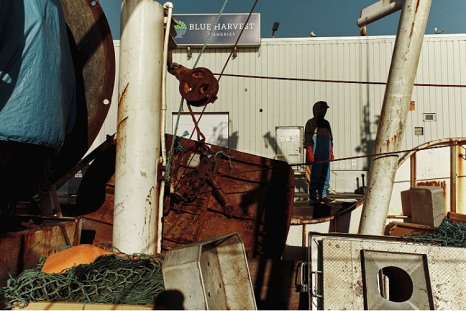
Senators Demand Federal Scrutiny of Private Equity’s Incursion Into Fishing
Three U.S. senators, including two members of a Senate subcommittee that oversees the fishing industry, are calling for greater federal scrutiny of private equity’s incursion into East Coast commercial fishing. The ProPublica/New Bedford Light investigation found that a federal regulatory system known as “catch shares,” which was adopted in 2010 to reduce overfishing, has fostered private equity’s consolidation of the industry at the expense of independent fishermen. The single largest permit holder in the New England groundfish industry is Blue Harvest Fisheries, which has rights to catch 12% of groundfish, approaching the antitrust cap of 15.5%. The current antitrust cap “fails to prevent excessive consolidation in the fishery,” said Geoff Smith, one of 18 members of the New England Fishery Management Council, which advises NOAA. >click to read< 10:23

America’s scallop harvest projected to decline again in 2022
The decline in scallops is happening as prices for the shellfish, one of the most lucrative seafoods in America, has increased amid inflation and fluctuations in catch. Seafood counters that sold scallops for $20 per pound to customers two years ago often sell them for $25 per pound or more now. U.S. scallop fishers harvested more than 60 million pounds of scallops in 2019, but the catch has declined since, and fishers were projected to harvest about 40 million pounds of scallops in the 2021 fishing year. That number is projected to fall to 34 million pounds in the 2022 fishing year, which started this spring, according to the New England Fishery Management Council. >click to read< 13:48
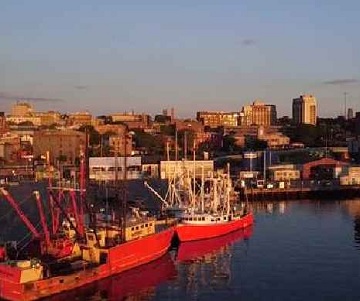
Port of New Bedford Applauds Appointment of Eric Hansen to New England Fishery Management Council
The Port of New Bedford applauds today’s appointment of Eric Hansen, a New Bedford scalloper and president of the Fisheries Survival Fund, to a seat on the New England Fishery Management Council (NEFMC). Hansen’s appointment will help ensure the concerns of New Bedford’s vital fishing community are represented at the Council level. New Bedford Mayor Jon Mitchell, chairman of the New Bedford Port Authority, recommended Hansen for the seat in a February letter to Massachusetts Governor Charlie Baker. >click to read< 07:25
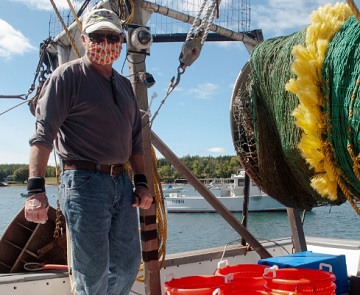
How many fish are in the sea? New rules intend to help with the count.
Regulators and fishermen hope new rules set to take effect this summer will provide a more accurate understanding of the population of some of New England’s most iconic fish, including Atlantic cod, which has seen a spectacular collapse in recent decades. The rules, adopted this spring by federal regulators, will require boats in groundfish sectors to have a human observer or a camera aboard on every groundfish trip to keep tabs on what they catch and discard. >click to read< 09:37

Straus speaks out against proposed changes to scallop permit leases
Plans to allow scallopers to lease out their fishing permits to others have been criticized by South Coast legislators, including Mattapoisett State. Rep. Bill Straus. In a letter to Gov. Charlie Baker dated May 6, the representatives wrote that they are “urging caution regarding the practice of fishing permit leasing”, the practice where scallop boats lease out their fishing days to other vessels rather then go out to sea themselves. The letter was also signed by Reps. Antonio Cabral, Chris Hendricks, Paul Schmid, and Chris Markey. Current regulations limit one permit per vessel. The state plan, from the New England Fishery Management Council, could allow fishermen to extend those leases and time at sea. > click to read < 13:15
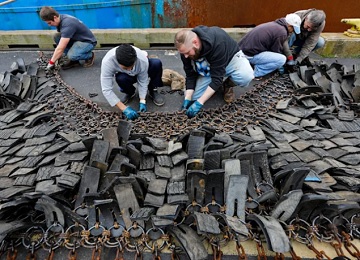
‘I don’t want to be a Wal-Mart fisherman’: Scallopers sound off about permit leasing/consolidation
The New England Fisheries Management Council held a scoping meeting Wednesday at the New Bedford Whaling Museum on its proposed Scallop Fishery Management Plan adjustment. Should it go through, the plan would allow scallopers to lease out portions of their days at sea license to other boats, causing concern among small fisherfolk and portside business-owners alike. “I was born a fisherman’s daughter and became a fisherman’s wife,” said Evelyn Sklar at the meeting. “And now I’m a fisherman’s mother and a fisherman’s grandmother. “I hope I can die in peace, because this doesn’t belong in the fishing family industry.” “When consolidation happened [in the groundfish fleet], the community dried up around it,” “As consolidation happened with draggers, they were forced out of business,” said Justin Mello, captain of the Temptress. “I can see the same thing happening. >click to read< 08:12
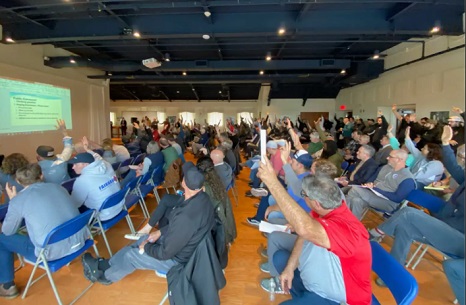
New Bedford Scallopers tell fishery managers they don’t want leasing
More than 110 attendees, a mix of fishermen, shoreside business owners, marine scientists, attorneys and vessel owners, filled a meeting room at the Whaling Museum on Wednesday for the first of two public meetings in New Bedford on the leasing proposal. Those who spoke in opposition drew loud applause, while those who spoke in support drew little or none. “There was a time in this industry when a father owned a boat and he taught his son, and his son was able to rise up … buy and operate his own boat, and you know, those days are gone,” said Tyler Miranda, a New Bedford captain of two scallopers. “I think that if [leasing] does move forward and is developed, it will take even further away from the family and community dynamic that fishing is and always was — and will make it more corporate.” >click to read< 13:50
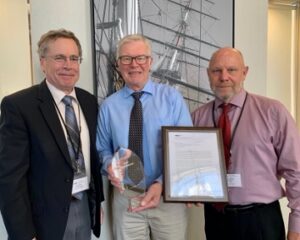
NEFMC Honors Lou Goodreau for 45-Year Career on Staff
The New England Fishery Management Council opened the first day of its April 12-14, 2022 hybrid meeting in Mystic, CT by paying tribute to Lou Goodreau, an economist and information technology specialist who is retiring in May following a dedicated 45-year career on the Council’s staff. Lou joined the staff on March 28, 1977, the year the Council was formed by the 1976 passage of what’s now called the Magnuson-Stevens Fishery Conservation and Management Act (MSA). He is the third longest serving staff member among the nation’s eight regional fishery management councils. >click to read< 17:55
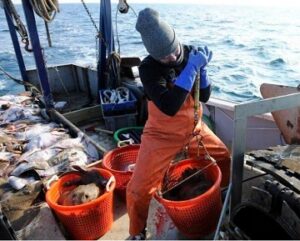
Rule change calls for monitoring of all groundfish trips – Not everyone is on board.
The most significant proposed change is a monitoring coverage target of 100% aboard eligible trips, which is higher than present monitoring levels. The change is meant to remove uncertainty surrounding catch. This and other changes, known as Amendment 23, to the Northeast Multispecies Fishery Management Plan were developed by the New England Fishery Management Council. According to a NOAA Fisheries fact sheet, the changes, if approved by NOAA Fisheries, would give groundfish vessels the choice of a human observer or using one of two types of electronic monitoring to meet the increased monitoring requirements, provided the sector has a corresponding approved monitoring plan and a contract with an approved service provider. >click to read< 12:37
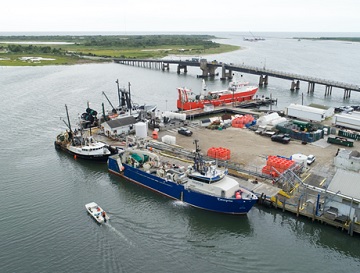
Mid-Water Herring Trawlers to Return to Inshore Waters – Court Overturns Exclusion Zone
Herring fishermen from New England and the Mid-Atlantic won a crucial decision last week when a federal judge in Boston ruled in their favor against an exclusion zone in Northeast U.S. waters. The court ruled that a National Marine Fisheries Service (NMFS) measure excluding the mid-water trawl fleet from productive inshore fishing grounds violated the Magnuson-Stevens Act, the nation’s premier fisheries law. The lawsuit was brought by the Sustainable Fisheries Coalition (SFC), a trade group representing herring and mackerel fishing companies. >click to read< 08:16
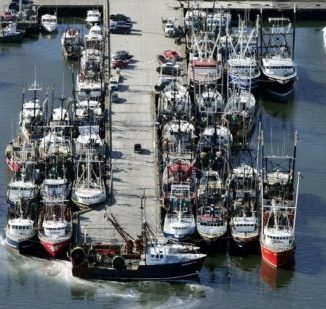
Mayor wants New Bedford voice on NEFMC
The last New Bedford voice on the council was John Quinn who left in 2021 and was replaced by Michael Pierdinock of Plymouth. Eric Hansen is looking to be the New Bedford voice on the council. “We’re the largest valued fishing port in the nation and to not have a voice on the council is just wrong,” Hansen said. Hansen has been a scallop fisherman, like his father and grandfather before him, for 44 years. He doesn’t go to sea anymore but his scallop vessel F/V Endeavor does and these days his son is at the wheel, serving as captain. >click to read< 09:12
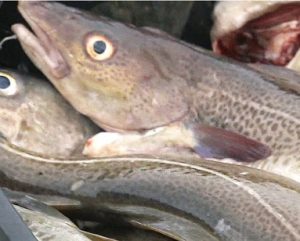
New England: Fishery groups question cod limits
Two fishing industry trade associations are asking the New England Fishery Management Council to reevaluate its drastically reduced catch limit recommendations on Georges Bank cod. The groups, the Gloucester-based Northeast Seafood Coalition and the Associated Fisheries of Maine, say the New England Fishery Management Council’s Scientific and Statistical Committee lacked “relevant information” to make its determination on an Acceptable Biological Catch for Georges Bank cod. They are asking for a remand. >click to read< 09:25
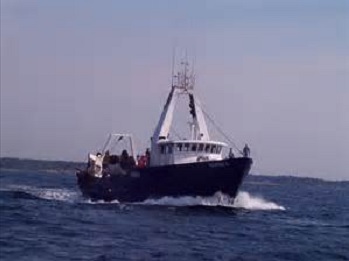
Looking Back: Mistrust between scientists, fishermen mars key mission
From the lightly swaying deck of his 98-foot trawler, Matt Stommel points out the scene of the crime, lit now in the deep orange of approaching sunset. Stommel’s boat, the Nobska, is docked on the Woods Hole waterfront here, with an easy view of the government laboratory charged with counting New England’s fish. It was from this perch, Stommel recalls, that he watched as workers marked a steel cable from an aging research vessel, the Albatross IV, on a freezing day in the winter of 2000. What he saw that day filled him with a skipper’s disgust. For the next two years, Stommel pleaded with scientists to check the cables and even offered to pay for the test himself. Last fall, the center admitted he was right,,, The episode, dubbed “trawlgate” on the docks, still casts a long shadow over New England’s imperiled fishery. >click to read< 07:20
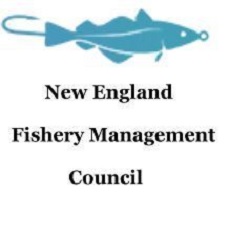
NEFMC Endorses 2022 U.S./Canada TACs; Discusses Groundfish Framework 63
During its late-September 2021 meeting, the New England Fishery Management Council agreed by consensus to accept the U.S./Canada Transboundary Management Guidance Committee’s (TMGC) total allowable catch (TAC) recommendations for three shared groundfish resources on Georges Bank. These involve Eastern Georges Bank cod, Eastern Georges Bank haddock, and Georges Bank yellowtail flounder. The TMGC recommended the TACs based on advice from the U.S./Canada Transboundary Resources Assessment Committee (TRAC). >click to read< 14:34

Fishermen in NCLA Video Explain the Need to Reel in NOAA’s at-Sea Monitor Rule
The New Civil Liberties Alliance released a video today outlining why it is unconstitutional to force Atlantic herring fishermen to fund government-mandated monitors at sea. It is “the equivalent of having a cop in your car who’s policing you while you drive, and you have to pay his salary out of your own pocket,” said Meghan Lapp, Fisheries Liaison & General Manager for Seafreeze, Ltd. about the rule being challenged in Relentless Inc., et al. v. U.S. Dept. of Commerce, et al. NCLA, a nonpartisan, nonprofit civil rights group, represents these private fishing companies,,, The at-sea monitor mandate, issued in 2018, is unlawfully “industry-funded.” >click to read< 08:50

I am not happy. Jackie Odell was not appointed to serve on the NEFMC.
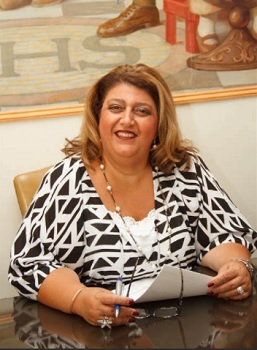
New England Fishery Management Council pick disappoints Gloucester Mayor – feds pulling bait-and-switch
Gloucester Mayor Sefatia Romeo Theken on Tuesday said the June 28 decision to appoint recreational fishing stakeholder Michael J. Pierdinock of Plymouth instead of Northeast Seafood Coalition Executive Director Jackie Odell “was a serious oversight which has not gone unnoticed” by commercial fishing stakeholders. Romeo Theken did not directly criticize Baker for his recommendation to Commerce Secretary Gina Raimondo, who had final say on the council appointment. But New Bedford Mayor Jon Mitchell did.,,, >click to read< 12:19
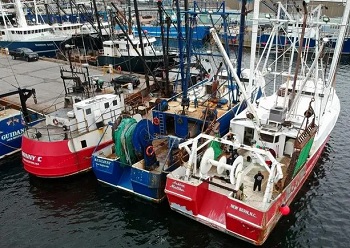
New Bedford mayor unhappy with Baker pick for council pick
Plymouth resident Michael Pierdinock was named to a seat representing Massachusetts on the New England Fishery Management Council, a panel that sets rules for the fishing industry such as catch limits. It is one of eight such regional councils nationwide. Pierdinock will replace former state Rep. John Quinn, a Dartmouth resident and longtime member who had years of expertise regarding commercial fishing issues in Greater New Bedford. “When it comes to commercial fishing in Massachusetts, New Bedford should be top of mind, not an afterthought,” Mitchell added. >click to read< 09:46

Governor Charlie Baker nominates locals for New England Fishery Management Council
The New England Fishery Management Council will lose four of its longest-serving members this summer because of term limits and two of the vacant seats could be filled by candidates from Cape Ann. Massachusetts Gov. Charlie Baker has nominated Jackie Odell,,, Baker listed recreational fishing stakeholder Mike Pierdinock as his preferred candidate,,, On their way out Quinn, Balzano, Terry Alexander, of Maine, and Matthew McKenzie, of Connecticut, will be leaving the council when their terms expire on Aug. 10. >click to read< 08:23
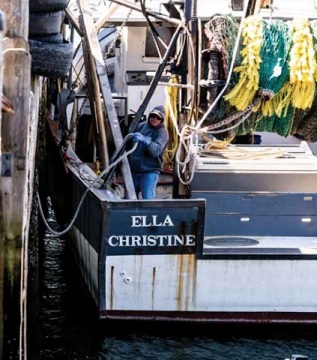
The Last of the Port Clyde Groundfishermen – Once robust, Maine’s groundfishery is on the ropes
When Randy Cushman was growing up in Port Clyde, some 300 trawlers were moored up and down Maine’s coast,,, Today, Cushman is 59 years old and might be Maine’s most knowledgeable commercial fishermen.,, But Cushman is barely scraping by. Prices for cod, flounder, and other groundfish have all but collapsed in Maine. The combination of rock-bottom prices, the need to protect the state’s fish stocks, and a dearth of fishing infrastructure make it harder than ever to be a fisherman here. Today, the robust Maine trawler fleet of Cushman’s youth has been reduced to around 30 boats. photos, >click to read< 14:21
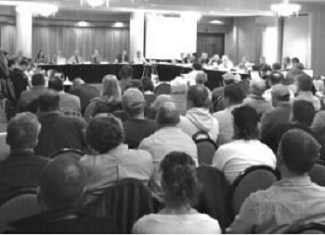
Term limits bumping four members from NEFMC
The New England Fishery Management Council will assume a decidedly different composition later this year when four councilors with almost 40 years combined tenure exit because of term limits. On Aug. 10, the terms of Chairman John Quinn of Massachusetts, Matthew McKenzie of Connecticut, Chairman John Quinn of Massachusetts, Matthew McKenzie of Connecticut, Vincent Balzano and Terry Alexander, both of Maine, are set to expire. >click to read< 17:50
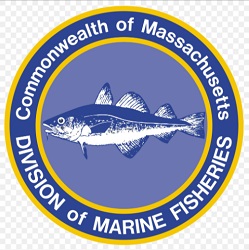
Qualified Applicants Sought for the New England Fishery Management Council
The Commonwealth of Massachusetts is seeking qualified individuals for nomination to the upcoming open seat on the New England Fishery Management Council. Candidates, by reason of their occupational or other experience, scientific expertise, or training, must be knowledgeable and experienced in ways related to fishery resources of New England. Qualified female and minority candidates are encouraged to apply. Nomination application kits will be made available upon request and are due to DMF by the end of the day on Friday, February 5, 2021. >click to read< 13:19
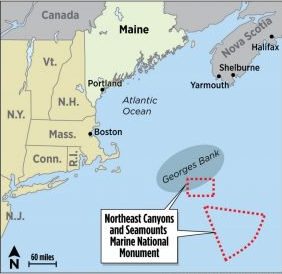
A legal war, a Biden win: What’s next for Northeast Canyons and Seamounts Marine National Marine Monument?
Lobstering groups say they aren’t opposed to protecting the natural habitats that sustain their industry. But they question whether the 5,000-square-mile monument is consistent with the Antiquities Act’s provision that designations be limited to the “smallest area compatible” with protecting the rich supply of marine life and corals that populate the Atlantic site. They also questioned the Obama administration’s position, which Trump officials have defended in court,,, Blocking off industry’s access to thousands of square miles of the Atlantic Ocean should require a little more public input, the fishing groups argue. Trump instead chose to preserve the site, although he traveled this summer to Maine to announce that he would lift all fishing restrictions in the monument.,, And in a matter of weeks, President-elect Joe Biden, who was vice president when Obama created the Atlantic monument, will be sitting in the White House. >click to read< 08:05
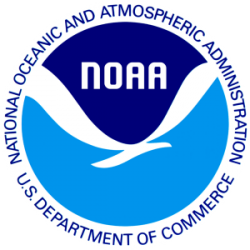
NOAA Fisheries Approves Electronic Reporting Requirements for Mid-Atlantic and New England Commercial Vessels
NOAA Fisheries has approved a recommendation from the Mid-Atlantic and New England Fishery Management Councils to require federally permitted commercial fishing vessels to submit vessel trip reports electronically as eVTRs within 48 hours of the end of a trip. This requirement will take effect November 10, 2021. This action affects all commercial vessels holding federal permits for any species managed by the Mid-Atlantic or New England Fishery Management Councils, >click to read< 14:59

Editorial: Cost of at-sea monitors is unfair, cost prohibitive.
Imagine trying to run a Main Street business, a restaurant or gift shop, maybe during the pandemic. A cratered economy and the threat of disease make each day a challenge and the future uncertain. Now imagine the government dropping another $700 in fees on you every time you open your doors. There’s no way your mom-and-pop operation could survive. The New England Fishery Management Council, which essentially sets the rules for commercial fishing in the region, will meet next week to decide how often monitors will be required on fishing vessels. Early indications are that councilors will require a monitor on every trip, with the average cost of $700 to be borne by fishermen. >click to read< 08:42
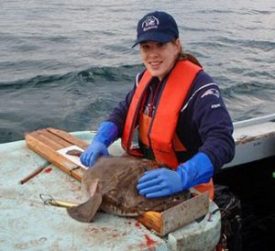
New England Fishery Management Council chooses 100% monitoring option on all groundfish trips
The council, which expects to take final action on the amendment at its meeting in late September and early October, has selected putting monitors on 100% of all groundfish trips as its preferred alternative for accomplishing the goal of the amendment — improving catch accountability, maximizing the value of collected data and minimizing costs. 0% monitoring levels and flatly proclaiming that forcing the industry to pay for 100% monitoring would bring an end to the historic commercial fishery. “The numbers you have up there make no sense to me,” said David Leveille,, “This will accelerate the expiration date of the fishery,” said Al Cottone, longtime Gloucester fisherman and the city’s fisheries director. “Once the federal money (which currently pays for at-sea monitoring) runs out, it’s over.” >click to read< 09:59

Fishing industry leaders voice offshore wind farm concerns to Trump interior secretary
Industry representatives voiced a raft of concerns with offshore wind, including the safety of commercial and recreational boaters navigating the waters, issues towing fishing nets through the farms and the potential for disrupting marine life.,, “In the West, we do wind. You know where we don’t put a windmill? In the middle of a highway,” Bernhardt said. “I need a development program that is done in a way that is sustainable for everybody.” Members of New England’s commercial fishing industry who feel they’ve been cast aside in the rush toward offshore wind took their concerns straight to the top of the Trump administration Tuesday in a Seaport sit-down with Interior Secretary David Bernhardt. >click to read< 12:57






